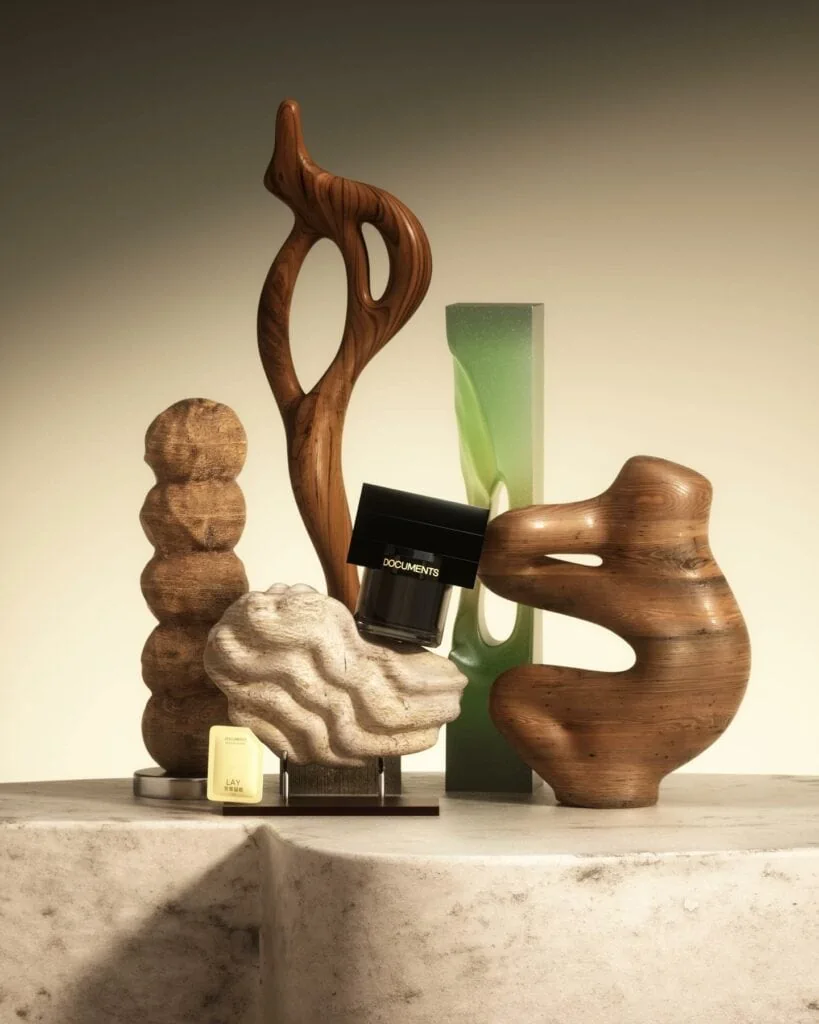International luxury brands like Chanel and Dior have traditionally dominated China’s perfume market, but as Chinese consumers show an increasing preference for “Eastern” scent notes, companies like L’Oreal are choosing to invest in local Chinese perfume brands, writes Qing Na from Dao Insights
Despite a relatively late start, China’s perfume and fragrance market has been catching up with the global market at full speed in recent years.
In 2021, retail sales of high-end perfume products in China recorded the fastest growth in a decade, pulling off an increase of 33% year-on-year – and leading market research institute Euromonitor International to dub 2021 the beginning of China’s “smell economy”.
On one hand, the prolonged impacts of the Covid-19 pandemic on mental health have contributed to the growth of the perfume market, with more young Chinese consumers seeking scented-based remedies to reduce anxiety and lift their mood.
On the other hand, strict Zero Covid protocols such as wearing masks in public places and repeated lockdowns and stay-at-home orders have dampened the demand for make-up products like lipstick, and instead pushed consumption desire towards perfume and fragrance. Many young buyers feel that perfume not only satisfies their emotional needs but also expresses their individuality. As a result, cosmetics brands have been doing their best to readapt their offerings in response to the consumer shift.
Up until three years ago, international luxury brands dominated the Chinese perfume and fragrance landscape. But now the tables are turning, and the marketing is seeing the rise of homegrown perfume brands such as Documents, To Summer and Scent Library. These brands have been taking on traditional foreign perfume makers like Chanel and Jo Malone with unique Eastern scents. Unlike their Western counterparts, these Chinese brands are curating more subtle scents using oriental ingredients such as lotus, bamboo and mugwort. These scents cater to the olfactory preferences of China’s young consumers, while also tapping into the Guochao trend, since the locally-grown plants are synonymous with Chinese literature and cultures, benefitting both branding and storytelling.
Chinese perfume brand Documents has a signature ‘zen cool’ aesthetic (Source: @documentsperfume on Instagram)
According to a recent survey of 1,400 regular perfume buyers by Chinese market research group iiMedia, over 60% were in favour of these Eastern aromas, which have “diversified their choices”. The responses also reflected that floral and fruity fragrances were losing their appeal among savvy young Chinese consumers, who are constantly seeking “something different”. This has also created opportunities for local brands to capitalise on these so-called niche fragrances and resonate with their target audience.
In light of the market boom and the emergence of local market challengers, internationally renowned names have taken different steps to ensure that they don’t miss out on this market prospect. Earlier in September, global beauty giant L’Oréal saw the first venture of its China fund, Shanghai Meicifang Investment, go to Chinese luxury perfume house Documents, which is supported by L’Oréal’s corporate venture capital fund BOLD (Business Opportunities for L’Oréal’s Development).
Following this strategic move, L’Oréal also sought to grab a slice of the burgeoning market by bringing Prada’s first perfume store in China to Shanghai, opening a dedicated store in the upscale Réel Mall in Jing’an (L’Oréal Group is responsible for the creation, development and distribution of luxury beauty products for Prada). Also eyeing China’s perfume market potential is South Korean beauty brand Tamburins. Under the umbrella of luxury eyewear brand Gentle Monster, Tamburins debuted its first multifunctional perfume line on the brand’s WeChat mini program and one of China’s largest e-commerce platforms Tmall, just a few weeks ahead of China’s largest annual online shopping extravaganza, Singles’ Day (aka Double 11 or 11.11).
These shrewd moves have the potential to bear fruit in the long run, considering perfume and fragrance application is fast becoming part of the lifestyle lived by China’s Gen Z and Millennials, with people living in Tier 1 and Tier 2 cities unsurprisingly leading the consumption trend. This has produced an increasing number of regular perfume users, with over 60% aged between 24 and 40 years old reporting they use such products several times a week and 17.5% are wearing them on a daily basis, according to findings by iiMedia. In addition, restricted movement under China’s Zero Covid policy has broadened the range of potential consumer scenarios to include home fragrances, aromatherapy and body fragrances.
With applying perfume and fragrance becoming increasingly commonplace amongst China’s younger consumers, the market is projected to hit RMB 30 billion (£3.72 billion) by 2025. This demand has prompted both market-leading international brands and emerging local brands to constantly innovate their scent offerings. On top of this, it is crucial for market players to broaden their product ranges and double down on efforts to develop subcategories in order to cater to the varied needs of this lucrative demographic.





